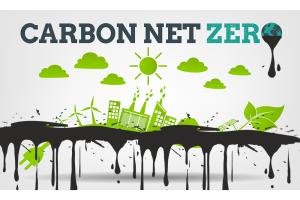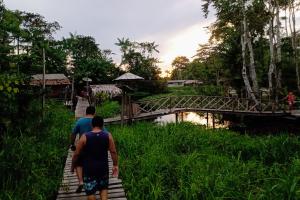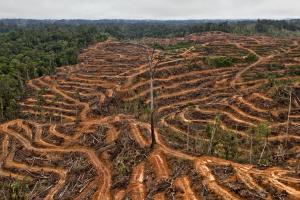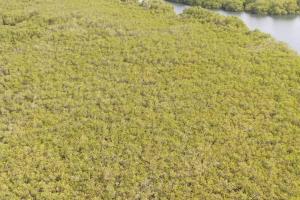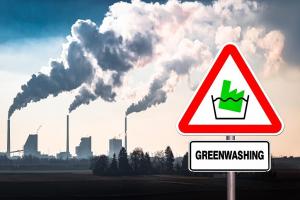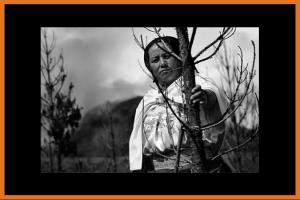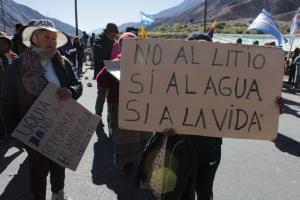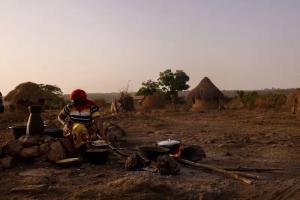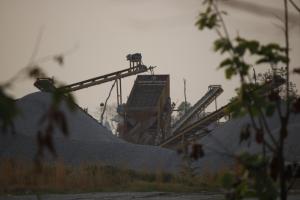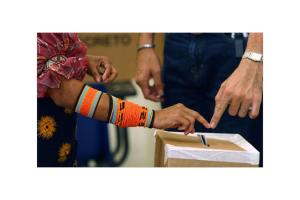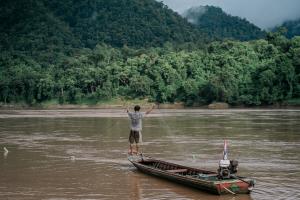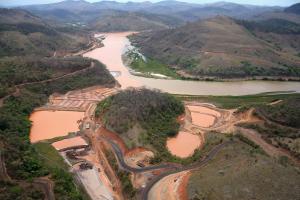The ‘green’ economy sells the idea that it is possible to confront climate chaos without looking at the direct link between power structures and pollution. Its ‘green’ programs allow energy demand to continue to grow, and thereby the accumulation of profits and injustices as well. In this way, it is actually a ‘green’ facade for the same violent, patriarchal, colonial and racist system.
The Green Economy
The Green Economy is a tactic used to “clean up” the image of corporations rather than address corporate capture and capitalism as the true drivers of deforestation. False solutions promoted under the Green Economy include certification, sustainable forest management, ecosystem services, REDD+, the bioeconomy, nature-based climate solutions, and zero net deforestation. Rather than stopping it, these “solutions” support corporate-driven destruction that is causing a deep social and ecological crisis.
Bulletin articles
22 July 2023
Bulletin articles
22 July 2023
In the ‘green economy,’ the interests of corporations, governments and the conservation industry intersect. All of these entities, in one way or another, profit from the destruction of forests and the dispossession of communities. In Pará, there are not only increasing REDD projects, but the state governor is seeking to implement jurisdictional REDD throughout the territory.
Bulletin articles
22 July 2023
This article tells the story of a women group in Kalimantan called “Hurung Hapakat”, which means “Working Together”. Collectively, and against serious repression, they have reclaimed some land from oil palm plantations in order to also reclaim their food sovereignty, dignity and wisdom. And they are not alone.
Bulletin articles
22 July 2023
Climate chaos is tangible in the Saloum Delta. Fishing-dependent communities face substantial impacts, which are accentuated by the fishing industry and the fossil fuel industry. A reforestation project of mangrove trees, funded by Shell, has now turned into a carbon project, which will exacerbate the climate impacts for communities. Among the profiteers from the fossil fuels’ extraction in Senegal is BP and Shell.
Bulletin articles
22 July 2023
This article reflects on the instrumental role that the certification schemes of carbon credits play in the framework of the green economy, as well as on the interests and contradictions that are intrinsic to this certification process.
Bulletin articles
22 July 2023
In this bulletin, focused on the violence that the so-called ‘green economy’ represents for Indigenous Peoples and peasant communities, we remember an interview with Josephina Lema, member of the Otavalo people of the Kichwa (Quechua) nation.
Other information
22 July 2023
In Jujuy, in northwest Argentina, indigenous communities and workers from different sectors are fighting against a provincial constitutional reform that was approved in June 2023. The reform enables lithium extraction in indigenous territories and criminalizes social protest, among other rights violations.
Other information
22 July 2023
An article from ProPublica exposes how the World Bank Group is backing up biodiversity offset projects via its arm that works with private companies, the International Finance Corporation, which has funded at least 19 with biodiversity offsets.
Bulletin articles
30 March 2023
Forests in Cambodia have seen large-scale deforestation with rubber and cassava plantations, illegal logging and other economic interests. Besides, Protected Areas and carbon projects like REDD+ have severely affected forest communities. Despite the criminalization, communities fight back, underlining the important connection between living with their forests and having autonomy to enough, diverse and nutritious food.
Bulletin articles
30 March 2023
A recent Popular Consultation in Ecuador attempted to include, among other things, ‘environmental services offsets’ as a constitutional right. The majority of voters voted against it. However, this attempt serves as a warning about the interests that wish to strengthen policies of appropriation and the commodification of nature.
Bulletin articles
30 March 2023
Indigenous Peoples and communities in the forests of Thailand are threatened with policies that have added a new type of asset: carbon credits. The legislation passed in the name of conservation and climate mitigation is in fact designed to limit the use of forest communities of their land and forests while encroaching them into smaller areas.
Bulletin articles
30 March 2023
Ending fossil fuel burning is urgent, yet oil and gas companies have been ramping up production and profits in 2022. Polluters greenwash their activities saying they offset their emissions with investments in ‘nature-based solutions’, which mean land grabbing, violence and corporate control over vast areas of land in the global South.
